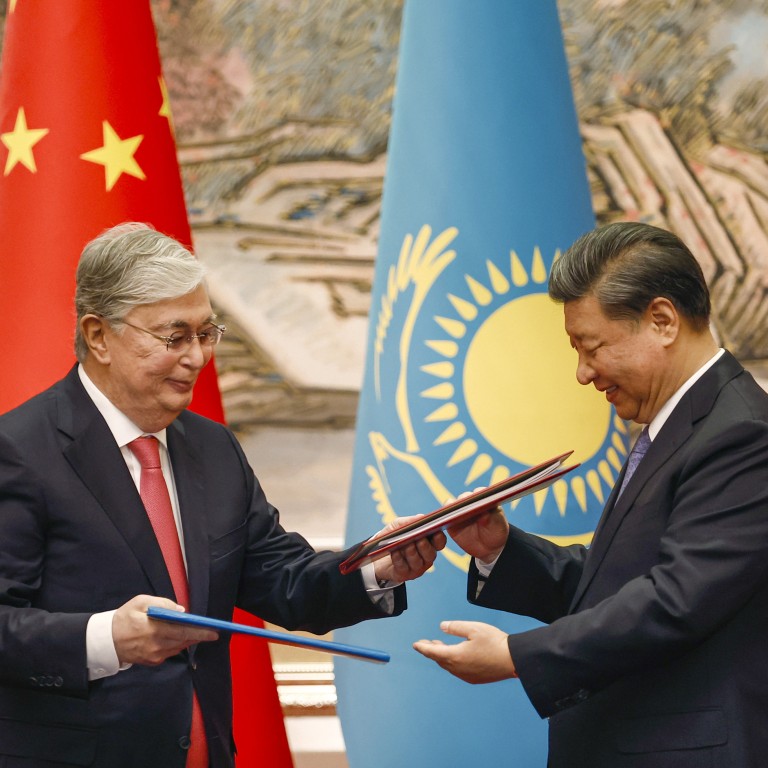
Xi makes clear China is ready to take its place in new world order
- First summit with Central Asian nations reflects how they can help Beijing while receiving an economic lifeline at a time of great geopolitical change
A new world order is the predicted outcome of a continuing realignment of global economic influence. The first China-Central Asian Summit reflected it, as did the keynote speech by President Xi Jinping, who called for the five Central Asian states to turn themselves into a bridge connecting Asia and Europe.
The independent states of Kazakhstan, Kyrgyzstan, Tajikistan, Turkmenistan and Uzbekistan are former republics of the old Soviet Union over which Russian influence is now in decline, accelerated since the invasion of Ukraine.
They now find themselves in a geopolitical divide, between a war near their borders, not to mention turmoil in Afghanistan, and uncertainties in the West, including economic weakness.
As a result they are bound to become more economically dependent on China, as a market for energy, raw materials and agricultural exports, and as a source of technology and industrial products. In these respects they can benefit from China’s Belt and Road Initiative.

Announcing development financial support of US$3.7 billion for Central Asian nations. Xi pledged to expand trade and economic cooperation and said Beijing would deepen regional connectivity. Amid transformation of the global order, the world was facing a turbulent period during which the five states needed to unite in mutual self-help.
China was ready to work closely with them to ensure sovereignty, security, independence and territorial integrity.
For China, facing attempts at containment from the United States and its allies, it is more important than ever for neighbouring Central Asian countries, Russia and Mongolia to have its back, so to speak, leaving it to focus on Taiwan, the South China Sea and pressure from the West.
China also needs to keep Central Asian countries close because the region can help China reduce its exposure to the vulnerabilities of delivery by sea of its energy needs. Likewise, China could enhance its own food security by investing in Central Asia’s agricultural sector to produce surpluses for export to the mainland.
The coincidence of two long-planned summits, China-Central Asia and the Group of Seven (G 7), is intriguing, not least because it reflects a changing world order.
China can help Central Asian ‘brethren’ to unite, Xi Jinping tells Xian summit
The combined gross domestic product of the G7, all wealthy Western democracies, now accounts for well under half the global economy in nominal terms, down from nearly 70 per cent three decades ago.
Meanwhile, the share of developing countries, with many of whom China will soon hold a Belt and Road Summit, has risen. This is what Xi is talking about when he refers to the changing world order.
The process may take another decade or more, but the parallel summits are a subtle reminder of the emergence of a more pluralistic world not dominated by one bloc.

